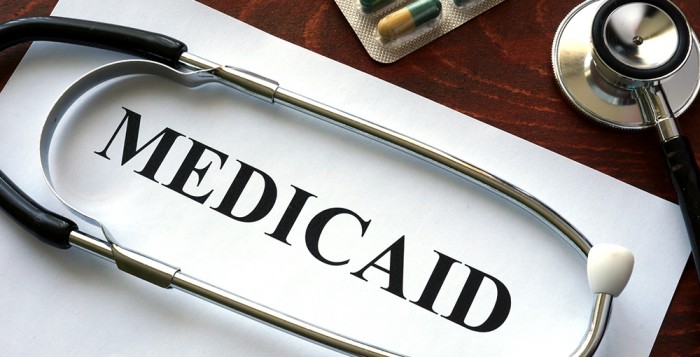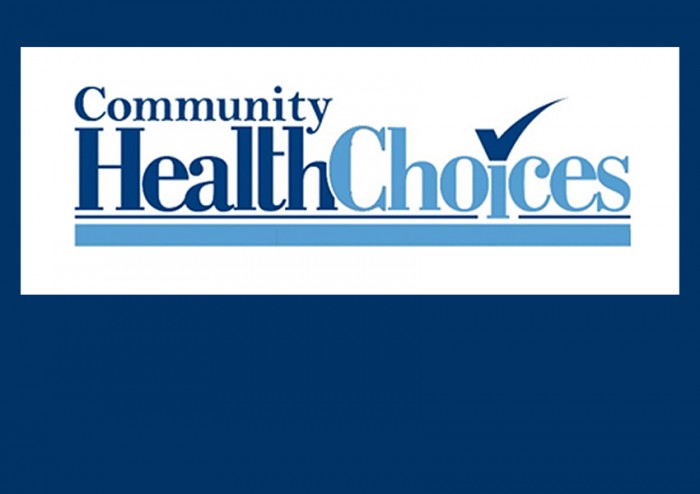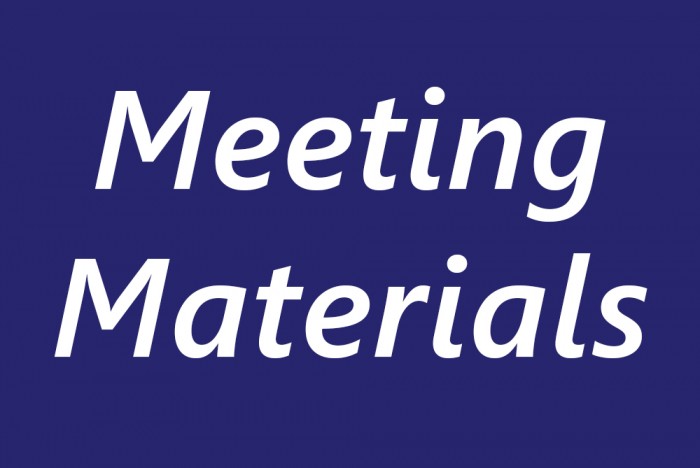Fady Sahhar
Provider Relief Fund Timeline
General and Targeted Distribution Post-Payment Notice of Reporting Requirements
The purpose of this notice is to inform Provider Relief Fund (PRF) recipients that received one or more payments exceeding $10,000 in the aggregate from the PRF of the timing of future reporting requirements. Detailed instructions regarding these reports will be released by August 17, 2020.
The reporting system will become available to recipients for reporting on October 1, 2020.
- All recipients must report within 45 days of the end of calendar year 2020 on their expenditures through the period ending December 31, 2020.
- Recipients who have expended funds in full prior to December 31, 2020 may submit a single final report at any time during the window that begins October 1, 2020, but no later than February 15, 2021.
- Recipients with funds unexpended after December 31, 2020, must submit a second and final report no later than July 31, 2021.
- Detailed PRF reporting instructions and a data collection template with the necessary data elements will be available through the HRSA website by August 17, 2020.
If you have any questions, please contact your RCPA Policy Director.
Upcoming ACRE Basic Certification Training
The ARC of Pennsylvania’s Making Employment Work course is an ACRE Basic Certification Training. To receive certification, participants must attend a 3-day, live webinar training and then complete a self-paced, online curriculum.
Live webinar training takes place on October 5–7, 2020, from 9:00 am to 11:00 am and 1:00 pm to 3:00 pm each day. The rest of the course is self-paced, online and will begin after the conclusion of the lectures on October 7, 2020.
Register for the training and complete the online registration form. See flyer for more information.
Updated: CARES Act Provider Relief Fund Payments Available for Medicaid/CHIP Providers
This communication is to update and replace the ListServ email sent on July 20, 2020 regarding the subject: CARES Act Provider Relief Fund Payments Available for Medicaid/CHIP Providers. The U.S. Department of Health and Human Services has updated the deadline to submit the application to HRSA for this funding to be August 3, 2020 and provided a fact sheet to answer questions. This information has been updated below. Please disregard the previous communication.
The U.S. Department of Health and Human Services (HHS), through the Health Resources and Services Administration (HRSA), announced additional distributions from the Provider Relief Fund to eligible Medicaid and Children’s Health Insurance Program (CHIP) providers that participate in state Medicaid and CHIP programs. HHS expects to distribute approximately $15 billion to eligible providers that participate in state Medicaid and CHIP programs and have not received a payment from the Provider Relief Fund General Allocation. The original deadline to submit the application to HRSA for this funding was July 20, 2020. HHS recently released an announcement that the deadline has been updated to August 3, 2020. A PDF fact sheet explaining the application process has also been released to address questions.
Eligibility Requirements:
To be eligible to receive HHS’ Medicaid Provider Distribution payments, initial key eligibility requirements for Medicaid and CHIP programs and/or Medicaid and CHIP managed care organization providers include:
- The provider must not have received payments from the $50 billion Provider Relief Fund General Distribution to Medicare providers (note: if a Medicaid/CHIP provider was eligible for the General Distribution payment and rejected the payment, it cannot be eligible for the Medicaid Provider Distribution);
- The provider must have directly billed or own (on the application date) an included subsidiary that has billed a state Medicaid/CHIP program and/or a Medicaid/CHIP managed care plan for health care-related services between January 1, 2018 and December 31, 2019;
- The provider must have either (i) filed a federal income tax return for fiscal years 2017, 2018 or 2019 or (ii) be an entity exempt from the requirement to file a federal income tax return and have no beneficial owner that is required to file a federal income tax return (e.g. a state-owned hospital or healthcare clinic);
- The provider must have provided patient care after January 31, 2020;
- The provider must not have permanently ceased providing patient care directly, or indirectly through included subsidiaries; and
- If the applicant is an individual, they must have gross receipts or sales from providing patient care reported on Form 1040, Schedule C, Line 1, excluding income reported on a W-2 as a (statutory) employee.
Examples of types of Medicaid/CHIP providers that are eligible for these payments include pediatricians, obstetrician-gynecologists, dentists, opioid treatment and behavioral health providers, assisted living facilities, and other providers of home and community-based services. In order to receive Provider Relief Fund payments, eligible Medicaid/CHIP providers must take action through HRSA’s application portal and comply with the Medicaid Relief Fund Payment Terms and Conditions.
Provider Relief Fund payments will be at least two percent (2%) of reported gross revenue from patient care. Eligible Medicaid/CHIP providers can report their gross annual patient revenue through the Enhanced Provider Relief Fund Payment Portal and the final amount that a provider receives will be determined after such data is submitted, including information on the number of Medicaid patients served. HHS has issued a comprehensive set of instructions for submitting an application through the application portal.
Before applying through the Enhanced Provider Relief Fund Payment Portal, applicants should:
- Read the Medicaid Provider Distribution Instructions – PDF
- Download the Medicaid Provider Distribution Application Form – PDF
In addition, DHS encourages Medicaid/CHIP providers to carefully review the Medicaid Relief Fund Payment Terms and Conditions with their attorneys and accountants on the appropriate use of and questions about CARES Act Provider Relief Funds.
- HHS has created a listing of CARES Act Provider Relief Funds Frequently Asked Questions (FAQ).
- The complete press release is on the HHS website.
- More information about eligibility and the application process is also available on the HHS website.
Contact your division’s policy director if you have any questions.
OLTL Update/Third Thursday Stakeholder Webinar Recap
The Office of Long-Term Living (OLTL) held a webinar providing consumers and other stakeholders an update. This may be the last Third Thursday Webinar, as it was originally designed to communicate with consumers and stakeholders during the rollout of Community HealthChoices (CHC). As the rollout is now complete, and the continuity of care has ended, the slides provide other public meetings and resources where the same content is covered.
Highlights:
- CHC Updates
- The Continuity of Care (COC) period ended on June 30, 2020 for the Northeast, Northwest, and Lehigh/Capital zones.
- CHC is now fully implemented statewide.
- The Department of Human Services is continuing to prioritize the monitoring and oversight of program operations and participant services.
- New Resource and Referral Tool
- The tool will serve as a care coordination system for providers and social service organizations and will include a closed-loop referral system that will report on the outcomes of the referrals.
- It will also serve as an access point to help Pennsylvanians find and access the services they need to achieve overall well-being and improve health outcomes.
- Responses can be submitted through the eMarketplace and are due by August 6th.
- Appendix K Transition Plan
- Waiver Services and Person-Centered Service Plans (PCSP)
- When a county enters the green phase, the CHC-MCOs may begin conducting comprehensive needs reassessments that were missed due to the public health emergency (PHE) and services can be adjusted based on the outcome of the reassessment.
- When a county enters the green phase, Service Coordinators should monitor participants and PCSPs through face-to-face contact when possible.
- Initial Level of Care Assessments
- Initial level of care assessments using the FED that take place in the participant’s home should be conducted face-to-face when possible.
- Initial level of care assessments using the FED that take place in nursing facilities should be conducted remotely using phone or video conferencing.
- Needs Assessments and Reassessments
- Service Coordinators must receive education and training from the CHC-MCOs on how to evaluate individual risk factors and protect themselves from potential exposure according to the guidance issued by the CDC and the Department of Health.
- Annual Reassessments, including the needs assessment, should be conducted face-to-face when possible.
- Personal Protective Equipment (PPE)
- PPE such as gloves, gowns and masks for participant use can be obtained as Specialized Medical Equipment and Supplies if no other source is available.
- This flexibility will continue for the duration of the Appendix K approval period regardless of the county’s status.
- Respite
- Respite in a licensed facility may be extended beyond 29 consecutive days without prior approval of the CHC-MCO, in order to meet the participant’s health and safety needs.
- When a county transitions to green, this flexibility continues if the need for additional respite is a result of COVID-19.
- Prior approval of the CHC-MCO is required. This remains in effect for the duration of the Appendix K approval.
- Personal Assistance Services (Agency and Participant-Directed) and Participant-Directed Community Supports
- When a county enters the green phase, spouses, legal guardians, and persons with power of attorney may no longer serve as paid direct care workers.
- Participants will be expected to resume using their existing direct care worker or a replacement worker, if necessary.
- Regional Response Health Collaboration Program (RRHCP)
CARES Act Provider Relief Fund Payments Available for Medicaid/CHIP Providers
The U.S. Department of Health and Human Services (HHS), through the Health Resources and Services Administration (HRSA), announced additional distributions from the Provider Relief Fund to eligible Medicaid and Children’s Health Insurance Program (CHIP) providers that participate in state Medicaid and CHIP programs. HHS expects to distribute approximately $15 billion to eligible providers that participate in state Medicaid and CHIP programs and have not received a payment from the Provider Relief Fund General Allocation. The deadline to submit the application to HRSA for this funding is July 20, 2020.
Eligibility Requirements:
To be eligible to receive HHS’ Medicaid Provider Distribution payments, initial key eligibility requirements for Medicaid and CHIP programs and/or Medicaid and CHIP managed care organization providers include:
- The provider must not have received payments from the $50 billion Provider Relief Fund General Distribution to Medicare providers (note: if a Medicaid/CHIP provider was eligible for the General Distribution payment and rejected the payment, it cannot be eligible for the Medicaid Provider Distribution);
- The provider must have directly billed or own (on the application date) an included subsidiary that has billed a state Medicaid/CHIP program and/or a Medicaid/CHIP managed care plan for health care-related services between January 1, 2018 and December 31, 2019;
- The provider must have either (i) filed a federal income tax return for fiscal years 2017, 2018 or 2019 or (ii) be an entity exempt from the requirement to file a federal income tax return and have no beneficial owner that is required to file a federal income tax return (e.g. a state-owned hospital or healthcare clinic);
- The provider must have provided patient care after January 31, 2020;
- The provider must not have permanently ceased providing patient care directly, or indirectly through included subsidiaries; and
- If the applicant is an individual, they must have gross receipts or sales from providing patient care reported on Form 1040, Schedule C, Line 1, excluding income reported on a W-2 as a (statutory) employee.
Examples of types of Medicaid/CHIP providers that are eligible for these payments include pediatricians, obstetrician-gynecologists, dentists, opioid treatment and behavioral health providers, assisted living facilities, and other providers of home and community-based services. In order to receive Provider Relief Fund payments, eligible Medicaid/CHIP providers must take action through HRSA’s application portal and comply with the Medicaid Relief Fund Payment Terms and Conditions.
Provider Relief Fund payments will be at least two percent (2%) of reported gross revenue from patient care. Eligible Medicaid/CHIP providers can report their gross annual patient revenue through the Enhanced Provider Relief Fund Payment Portal and the final amount that a provider receives will be determined after such data is submitted, including information on the number of Medicaid patients served. HHS has issued a comprehensive set of instructions for submitting an application through the application portal.
Before applying through the Enhanced Provider Relief Fund Payment Portal, applicants should:
- Read the Medicaid Provider Distribution Instructions – PDF
- Download the Medicaid Provider Distribution Application Form – PDF
In addition, DHS encourages Medicaid/CHIP providers to carefully review the Medicaid Relief Fund Payment Terms and Conditions with their attorneys and accountants on the appropriate use of and questions about CARES Act Provider Relief Funds.
HHS has created a listing of CARES Act Provider Relief Funds Frequently Asked Questions (FAQ).
The complete press release is on the HHS website.
More information about eligibility and the application process is also available on the HHS website.
** Please note when applying for this, the first step is to enter your Tax ID Number. The number must be verified before you can move to the next step. This could take a day or two, therefore providers should NOT wait until the last day, July 20 to apply.
DHS: Funding Details for PAS Agencies, Personal Care Homes, Residential Habilitation Facilities, CHC MCOs
The Department of Human Services has now posted CARES Act funding details along with a Facility Acceptance Form.
Important to note that the Facility Acceptance Form includes some conditions and timelines for the use of these funds:
- Will be used in response to the COVID-19 public health emergency.
- Only towards eligible expenses that include staff personnel and training costs, housekeeping supplies, and the lease or purchase of medical supplies and equipment including personal protective equipment and testing supplies.
- Applied to expenses incurred during the period March 01, 2020 through November 30, 2020.
- The final expense report will be submitted on or before December 16, 2020.
- If the subsidy exceeds the actual expenditures incurred, the excess subsidy will be returned to the Commonwealth with the final expense report.
If you have any questions, please contact your RCPA Policy Director.
Community HealthChoices Fact Sheet: Continuity of Care
On June 30, 2020, the continuity of care period for long-term services and supports in the Northeast, Northwest, and Lehigh/Capital Regions ended. Community HealthChoices (CHC) is now fully implemented across Pennsylvania.
This may prompt questions from CHC participants on:
- A change to their service provided due to the managed care organization (CHC-MCO) ending their contact with a provider.
- A change in service coordinator due to their CHC-MCO ending its contract with a service coordination entity.
- A change to the amount, duration, or frequency of service they are receiving.
A CHC-MCO must alert the Office of Long-Term Living (OLTL) in writing of its intent to terminate contracts with a provider and services that a provider provides 90 days before the termination’s effective date. Procedures to address the termination’s impact on participants should be in place and participants must be notified in writing 45 days before the effective date.
OLTL will continue to monitor notification requirements, service plan changes, service denial notices, complaints, and grievances despite the continuity of care period ending. CHC-MCOs will be held accountable for meeting notification requirements to ensure participants are properly informed and continue to receive necessary services without unexpected disruption.
Participants with questions or concerns about changes to services or service delivery should contact their CHC-MCO. If questions remain, after talking with their CHC-MCO, participants can contact the OLTL at 1-800-757-5042.
Due to COVID-19, exceptions may apply under limited circumstances. Please refer to the “Transition Plan to Phase Out Temporary Changes to the Community HealthChoices 1915(c) Waiver” issued by the Office of Long-Term Living.
For more information on continuity of care, please view the fact sheet here.
CHC is now live across Pennsylvania. Make sure you and your coworkers have the information you need about CHC. Take our 30-minute online training.
If you have other questions about CHC, view our comprehensive question and answer document.
CONTACT: If you have any questions, please visit www.HealthChoices.pa.gov or submit comments electronically to [email protected].
RCPA Financial Update Webinar July 9
EVV Public Meeting Summary and Materials
As a follow up to the Bulletin published on 6/11/2020, OMAP and DHS held a public meeting emphasizing the continuing conversion to EVV, for all Personal Care Services (PCS) in the OLTL and ODP waivers, as well as the OMAP Fee For Service PCS.
Highlights:
- The conversion to EVV for all Personal Care Services continues and is not impeded by the COVID-19 Public Health Emergency
- The target is for all providers to be utilizing EVV by October 1, 2020
- After November 20, 2020, non-compliant shifts will not be paid
- The presentation outlines specific error codes and remedies to clear denials
- Manual adjustments will be part of identifying pattern non-compliant providers
The enrollment and certification process can take up to 12 weeks. It is critical to initiate the process if your agency provides PCS and does not currently use EVV.
The recording of this session can be found here.
Future public meetings are scheduled:
- July 30: 1:00 pm – 3:00 pm
- August 28: 1:00 pm – 3:00 pm
- September 25: 1:00 pm – 3:00 pm
- October 23: 1:00 pm – 3:00 pm
Additional information can be found here.
















